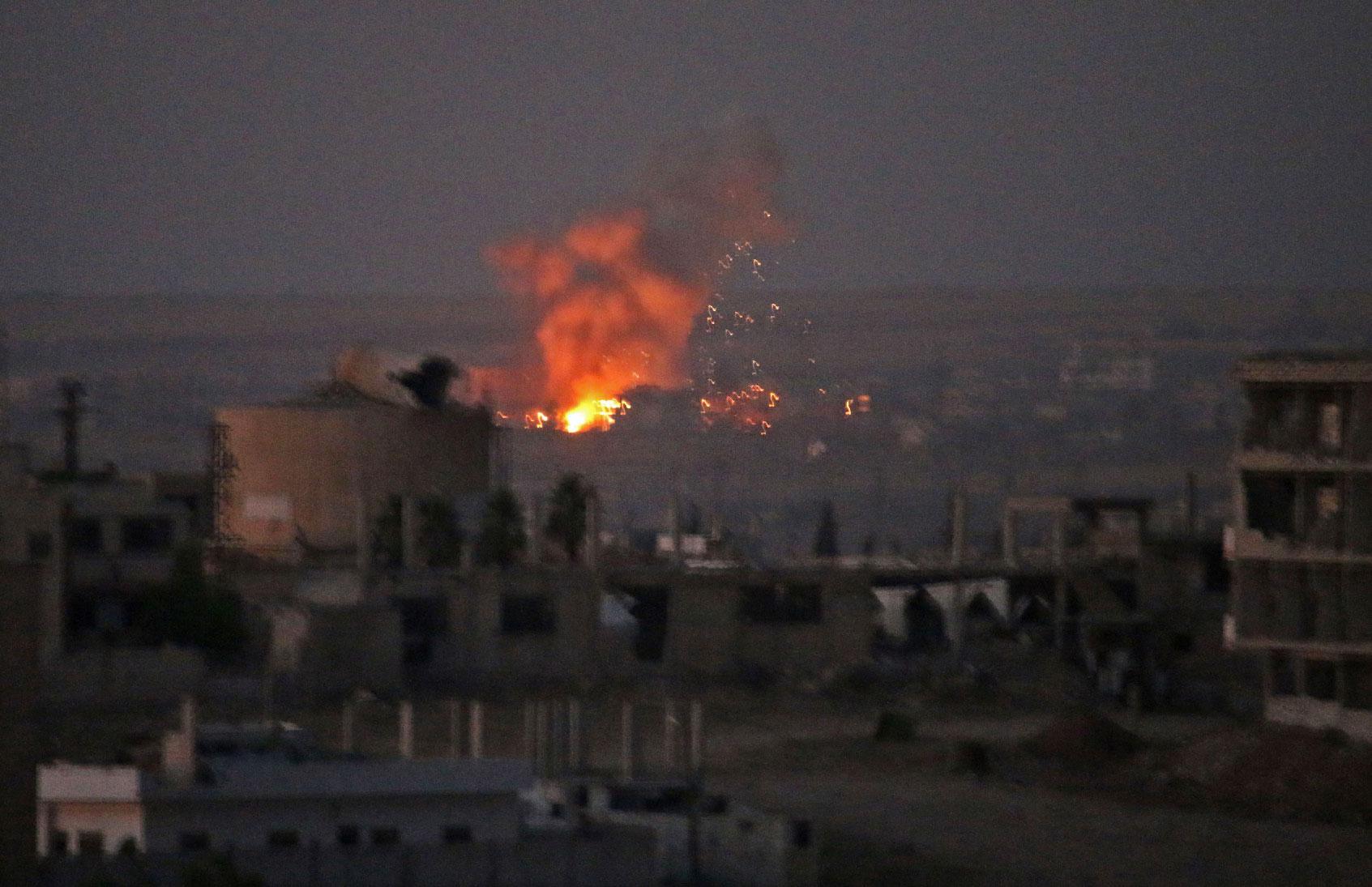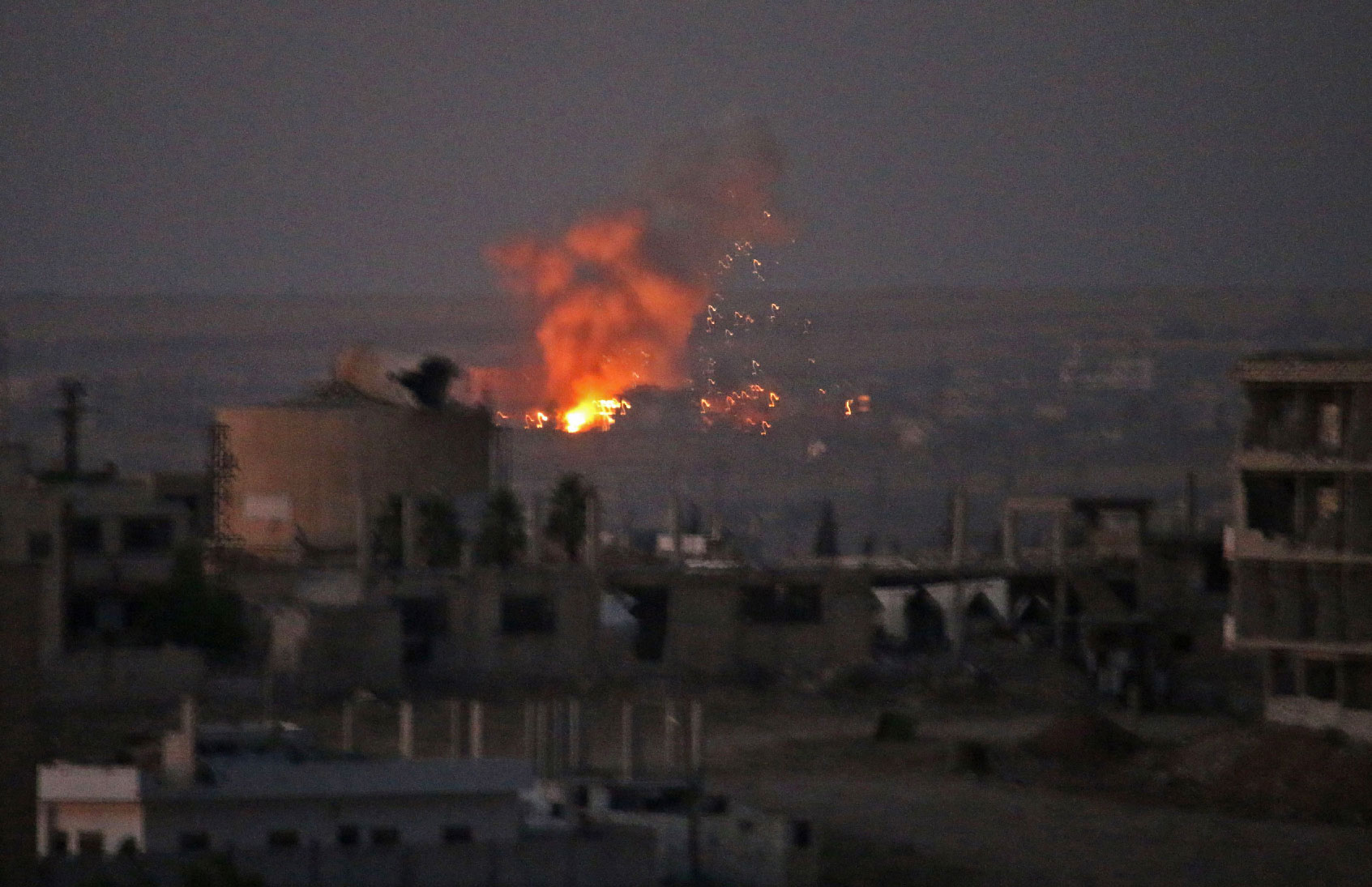Syria regime retakes key border crossing
DERAA - Syria's regime and its Russian ally took control of a key southern border post with Jordan on Friday, a monitor said, more than three years after it was seized by rebels.
That came as rebels said they were close to a deal with Moscow that could end a ferocious two-week government offensive backed by Russia.
"Cars carrying Russian military police and representatives of the Syrian government's border administration entered the Nassib crossing without a fight," said Rami Abdel Rahman, head of the Syrian Observatory for Human Rights.
Rebels captured the Nassib border crossing in April 2015, sealing off one of the Syrian government's most important trade routes.
With its recapture, the government in Damascus is hoping to revive commerce with neighbouring Jordan.
Syrian state news agency SANA reported Friday that the government's two-star flag had been raised over the crossing.
The border takeover was one of the regime demands discussed by rebel and Russian negotiators on Friday, two rebel spokesmen said.
Talks were still underway on Friday afternoon but the broad contours of a deal had been reached, said one of the spokesmen, Hussein Abazeed.
They included a ceasefire for Deraa, the main southern province, and a rebel surrender of heavy weapons.
Government forces would then take control of a key route running along the Jordanian border, up to the crossing.
"The Nassib crossing will come under a Syrian civil administration, with Russian supervision," said Abazeed.
Collapse
The rebels met with Russian negotiators on Friday after a ferocious 24-hour bombing blitz pushed them to agree to resume talks.
Moscow, a key ally of the Damascus regime, has been brokering talks for the negotiated surrender of rebels in areas of southern Syria bordering Jordan and the Israeli-occupied Golan Heights.
The negotiations collapsed on Wednesday, with rebels blaming Russia, ushering in a day-long volley of air strikes, barrel bombs, and missiles that ultimately pressured rebels to return to the table.
Hussein Abazeed, spokesman for the south's joint rebel command, accused Russia of pursuing a "scorched earth policy" to force rebels back into negotiations.
The joint command said on Thursday it would be willing to hold "a new round of negotiations" if a halt to hostilities was immediately put into place.
As rebels made their announcement, bombardment died down across swathes of the south, according to the Syrian Observatory for Human Rights monitoring group.
By Friday morning, intermittent strikes and barrel bombs were hitting Deraa province's eastern countryside but overall the raids were less intense than the previous day.
After securing areas around the capital this year, President Bashar al-Assad last month turned to the south, launching a bombing campaign on rebel areas on June 19.
Moscow, which intervened militarily in Syria in 2015, simultaneously began brokering talks, employing a carrot-and-stick strategy that has allowed the regime to recapture significant territory.
Aiming at border post
Under such deals, rebels hand over heavy weapons, local police take control of the area and government institutions resume working there.
More than 30 rebel towns have agreed to fall back under regime control through these agreements, doubling the government's hold on Deraa province to around two-thirds.
On Thursday, regime forces made sweeping advances on the border with Jordan, seizing their first security post there in more than three years, the Britain-based Observatory said.
Rebels then handed over some 275 square kilometres (105 square miles) of border territory without a fight, said Observatory chief Rami Abdel Rahman.
Syria's cash-strapped government had prioritised the recapture of Nassib so that it can reopen trade with Jordan to the south.
Deraa is considered the cradle of the 2011 uprising against Assad that triggered Syria's war.
Rebel territory in the south was included in a ceasefire brokered last year by Russia, the United States, and Jordan, but that has done little to stem violence.
On Thursday, the United Nations Security Council convened in an urgent closed-door meeting to discuss the south, but Russia blocked the council from adopting a statement.
More than 150 civilians have been killed since the start of the offensive, according to the Observatory.
The offensive has pushed more than 320,000 people to flee, according to the UN, many to the closed border with Jordan or west near the Israeli-occupied Golan.


